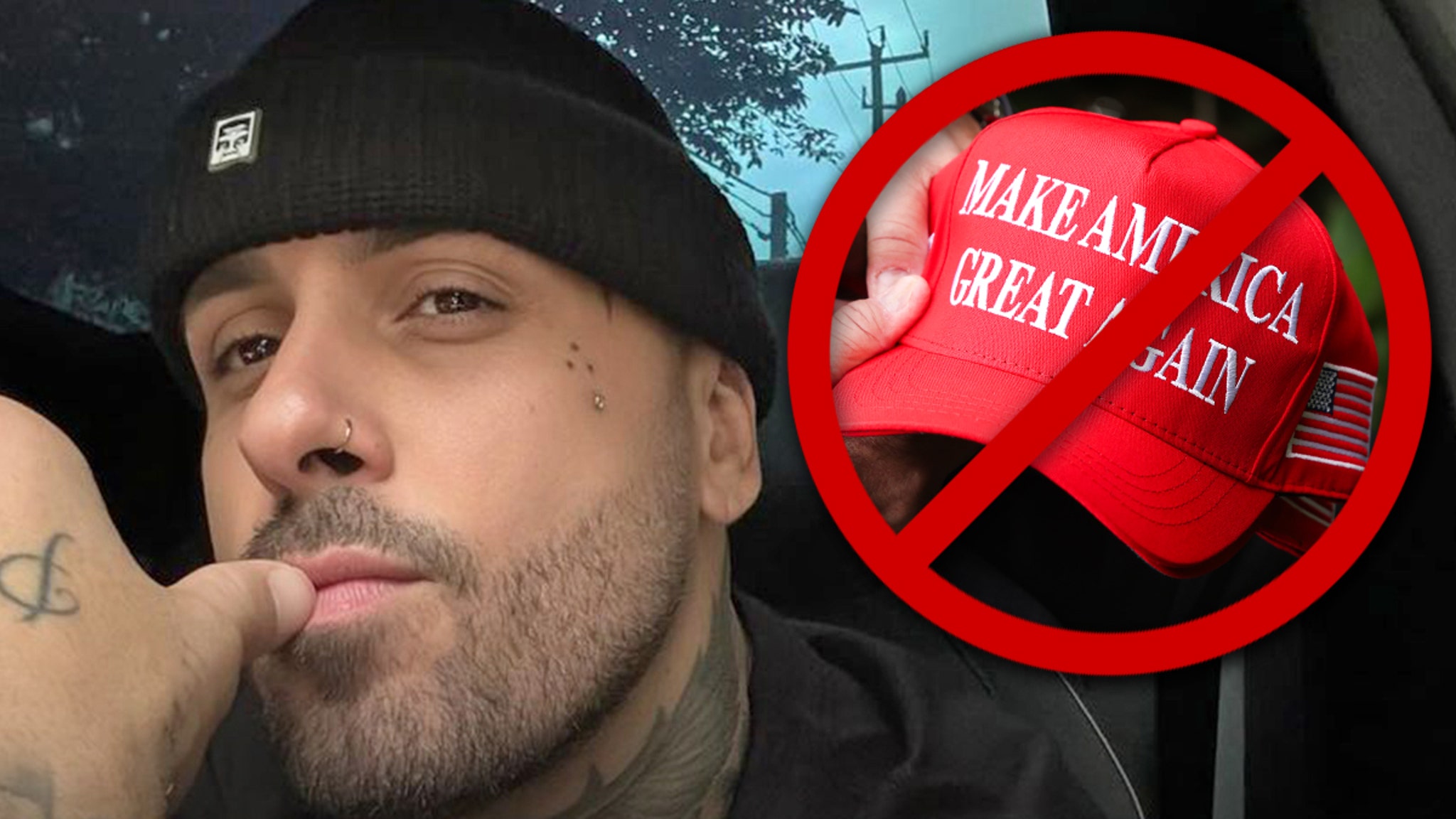Products You May Like
In a surprising turn of events, renowned reggaeton artist Nicky Jam has withdrawn his support for former President Donald Trump and his presidential campaign. The singer’s announcement comes on the heels of a controversial rally where comedian Tony Hinchcliffe made disparaging remarks about Puerto Rico, labeling it a “floating island of garbage.”
Nicky Jam, who is of Dominican and Puerto Rican heritage, took to social media to clarify his stance. In a heartfelt video shared on Instagram, he explained that his initial endorsement stemmed from a belief that Trump would be a more favorable candidate for the economy, particularly benefiting immigrants. However, the singer expressed his disappointment after witnessing the inappropriate comments made at the rally, indicating that he did not anticipate such disrespect towards his homeland.
Jam’s decision to revoke his endorsement was influenced significantly by Hinchcliffe’s remarks, which drew widespread backlash. In his statement, Jam articulated his surprise and disapproval, stating, “I did not think that a month later, there would be this comedian who would speak badly of my country.” By withdrawing his support for Trump, Jam underscores the importance of respectful discourse regarding Latino communities, highlighting the issues of representation and dignity.
The fallout from Hinchcliffe’s comments extended beyond Nicky Jam, sparking outrage from Puerto Rican advocates and the general public. Critics emphasized the necessity for leaders to denounce such rhetoric, which is deemed offensive and prejudiced. While Trump’s campaign later clarified that Hinchcliffe’s remarks do not represent the views of the candidate, many argue that the lack of immediate condemnation during the rally reflects a deeper issue regarding sensitivity towards cultural and ethnic matters.
As the political landscape continues to evolve, Nicky Jam’s change of heart serves as a reminder of the influence public figures can have in shaping discussions around identity and diversity. His withdrawal of support highlights a growing trend among artists and public personalities to hold political figures accountable for their words and actions, especially when it involves their cultural heritage.
In a time of heightened political tensions and societal discourse, Jam’s stance encourages a broader conversation about the responsibility of artists and entertainers to engage with socio-political issues thoughtfully and authentically. By voicing his concerns, Nicky Jam not only expresses his discontent but also inspires others to reflect on the implications of their political endorsements and the significance of cultural representation in leadership.
This unfolding narrative emphasizes the intersection of celebrity influence and political engagement, illustrating how individual actions can resonate with a broader audience. As we witness the upcoming election cycle, these dynamics will likely play a critical role in shaping voter sentiment and the discourse surrounding candidates.In a recent event, former President Donald Trump found himself in an awkward situation while addressing his supporters at a rally in Las Vegas. The incident involved Latin singer Nicky Jam, whom Trump mistakenly referred to in a surprising manner. This wasn’t the first time the ex-president stumbled over names or identities, as he previously misgendered the artist during the same rally.
During his introduction, Trump asked the crowd if they recognized Nicky Jam, describing him in a way that implied a misunderstanding of the artist’s gender. Trump exclaimed, “she’s hot,” prompting a mix of reactions from the audience. Such a slip can be particularly sensitive, especially concerning public figures and their identities. The moment illustrated Trump’s propensity for making head-turning comments, often leading to unintended consequences.
As Nicky Jam took the stage, the Latin star appeared to overlook Trump’s blunder, opting to proceed with his address rather than react to the slip. The artist’s choice to maintain composure highlighted the often-understated challenges faced by public figures when navigating unexpected or uncomfortable situations.
Despite the minor faux pas, it became evident that Trump displayed genuine surprise when Nicky Jam, a prominent male artist in the Latin music scene, stepped up to speak. Perhaps the contrast between Trump’s comment and Jam’s presentation was a reminder of the delicate balance of public perception and identity in the world of entertainment.
This incident adds to a growing list of verbal missteps by the former president, fueling discussions about his communication style and the impact of such gaffes on public figures. Fans and critics alike often analyze these moments, debating their significance and implications for future interactions within political and social arenas.
Looking back at the rally, it seems that Trump’s off-the-cuff remarks continue to stir conversation, leaving audiences both entertained and bewildered. Whether these verbal slips stem from genuine misunderstandings or a broader approach to candid speech, they encapsulate the chaotic dynamics of today’s political discourse. Clearly, in the world of celebrity and politics, every word counts, as Trump has learned time and again.
In summary, the rally saw Trump navigating yet another verbal minefield, leaving both his supporters and critics captivated by his occasional lapses. It’s moments like these that contribute to the ongoing narrative around Trump’s public image, providing material for both laughter and criticism as he continues to pursue his political ambitions. Whether he will learn from these encounters remains to be seen, but one thing is for sure—popular culture and politics will remain intertwined as they continue to evolve.
